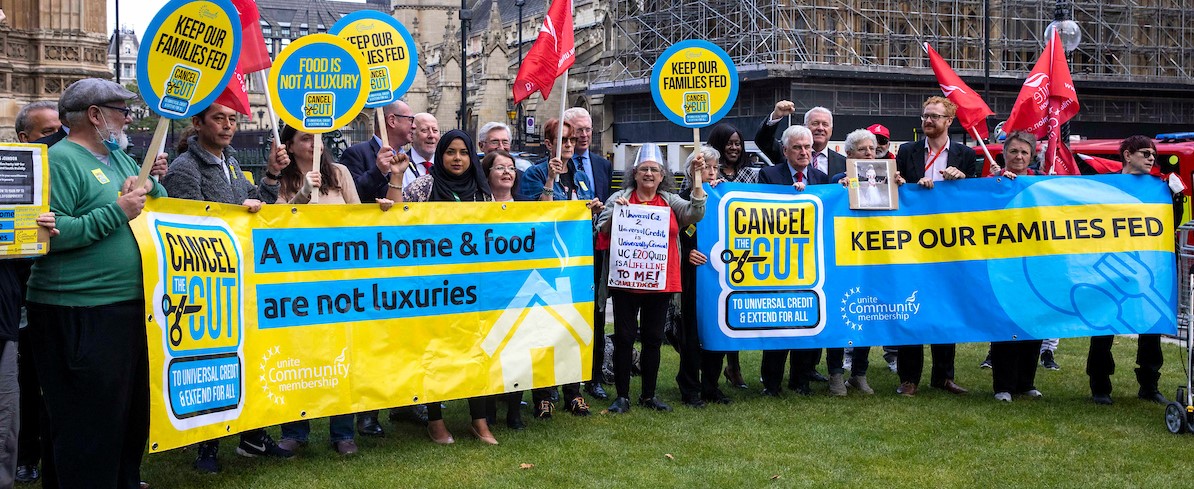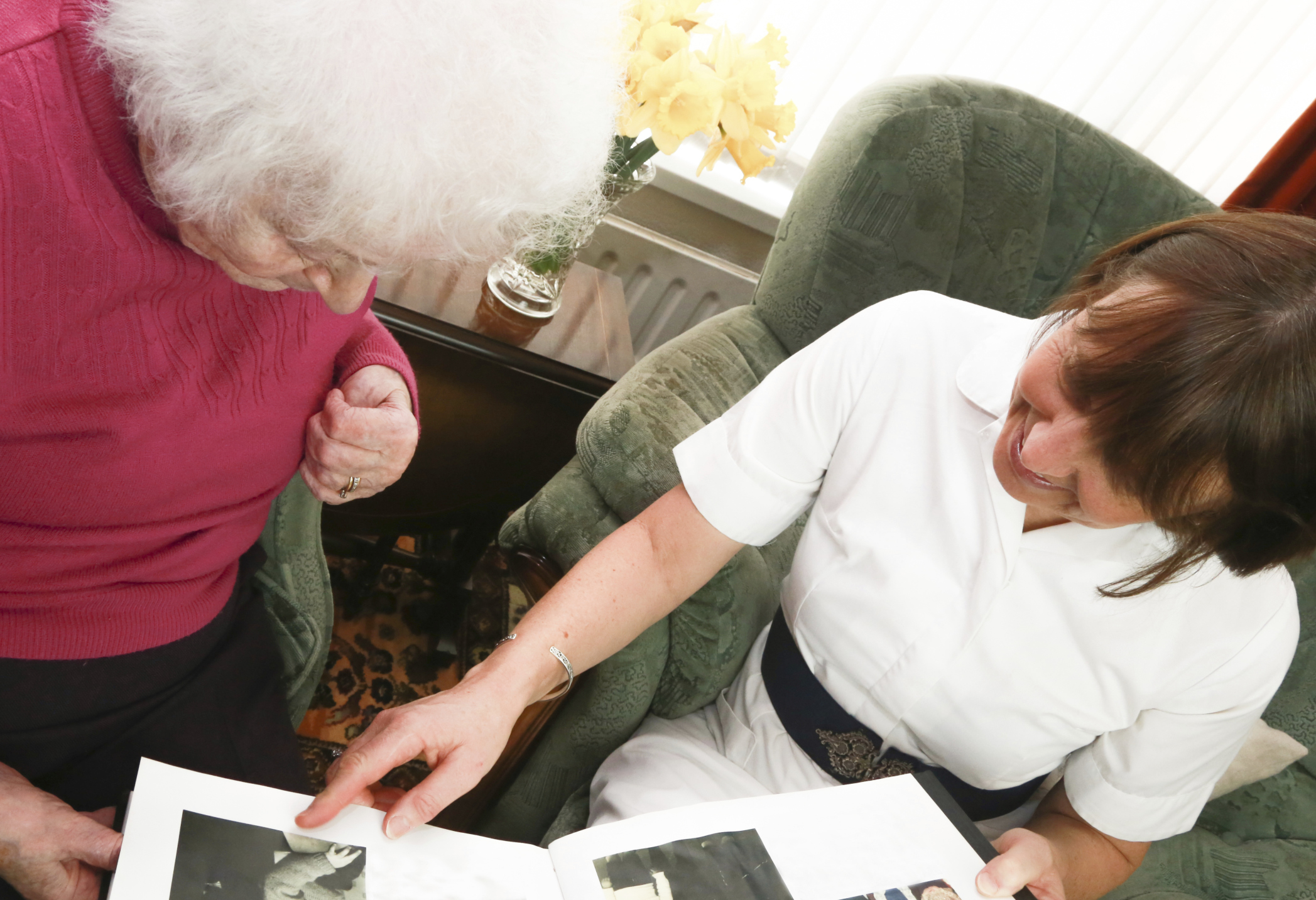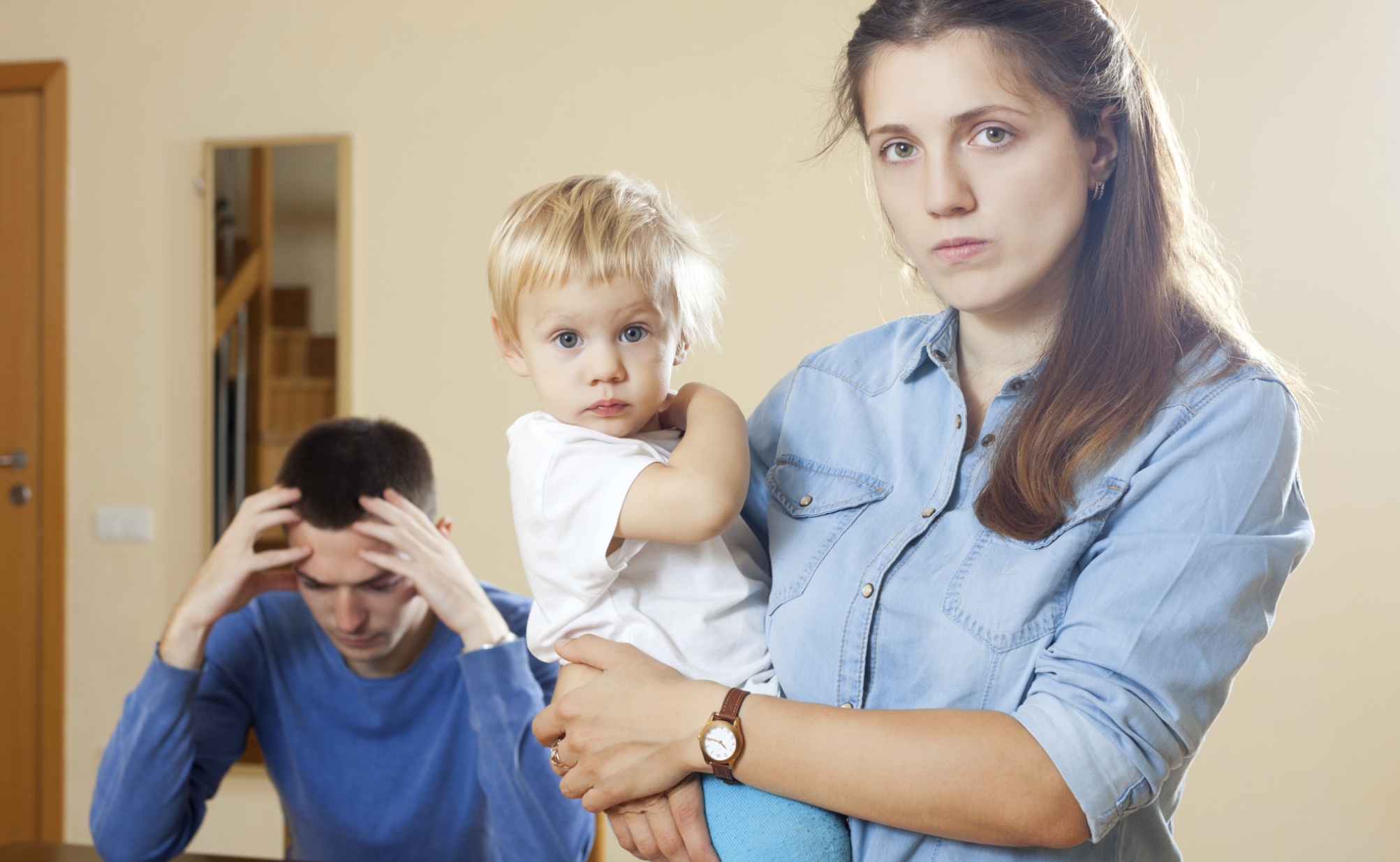‘We allow the world to carry on’
As part of Carers Week, UNITElive is publishing a series of stories featuring Unite members who care for their relatives or work in the care sector.
It would be wrong to say that Unite member June-Elizabeth Gulley broke the mould, because in truth there wasn’t ever one that could contain her.
During her working life June-Elizabeth served as the first black police officer in Northamptonshire, as well as being a nurse and running a music school for disadvantaged children with her husband, Clifford.
The Northampton born child of Jamaican parents with Irish and Scottish heritage, June-Elizabeth, 58, is a diverse and colourful character who refuses to be pigeonholed.
So it makes sense that June-Elizabeth’s relationship with jazz saxophonist Clifford, 78, who is partially blind and suffers from chronic obstructive pulmonary disease and arthritis, doesn’t fit into any tired stereotypes about the put-upon care giver.
“Without my husband I wouldn’t be who I am,” explained June-Elizabeth. “He’s my advisor, he’s my friend, he’s everything. In the past he looked after my mum and my dad and me. And he’s a self-made man.”
The pair met on a London train in 1980, when June-Elizabeth asked Clifford for directions.
“I saw this man standing with some kind of instrument and I was thinking about the bible verse that said â€players on instruments (shall be there: all my springs are in thee)’. I asked him directions and he said I’m going that way, so I’ll show you,” she recalled.
The couple became pen pals and close friends over the years, before enjoying “some old school courting” and deciding to make a go of it. This year they celebrated their 21st wedding anniversary.

Unite member June-Elizabeth Gulley and husband Clifford
Problems at work
Unfortunately there is one aspect of June-Elizabeth’s life that has conformed to the same old routine – for the 15 years she has been Clifford’s registered carer she has encountered problems at work.
June-Elizabeth, who works in the health sector and sits on Unite’s national disabilities committee, said many of Britain’s 6.5 million unpaid carers face similar problems at work.
“I find that some organisations don’t really support carers as much as I’d expect them to,” she said.
“For instance, I needed some time off to take Clifford to the eye clinic and my employer said that I’ve got to go in my own time or go when they owe me time off in lieu, even though they should give me dependancy leave.
“But they said, â€no, unless it’s an emergency you can’t have dependancy leave’. That’s not proper. I have to use some of my holidays to book my own appointments, because I’m disabled myself, as well as using them to book Clifford’s. As a carer it just makes you increasingly tired because you don’t have the time off you’re supposed to in order to rest.”
‘Structure of the country’
June-Elizabeth is part of the Northamptonshire Carers Association – one of the top performing carers charities in the country – and recently took part in a consultancy on how to better provide support for carers in the region. She said it’s about time carers received more recognition and assistance for the work they do.
“I can see that what will happen with all these cuts to services that are going on — more and more carers will get burnt out and the ones that work will end up on sick leave,” said June-Elizabeth.
“The fact is you’re always a full time carer. Carers are part of the structure of this country. They allow the workforce to continue. Carers allow the world to carry on. But they’re hidden. If there were no carers the health service and the country would be in a much worse state.”
June-Elizabeth is right — a 2015 University of Sheffield report found that carers save the state ÂŁ132bn a year, close to the cost of a second NHS.
Unite recognises the value and commitment of Britain’s carers and fights for their rights at work and in society.
 Like
Like Follow
Follow


